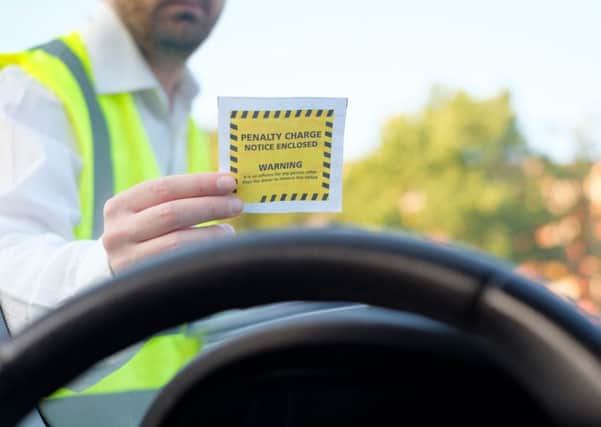Portsmouth hit by £113k bill to seize hundreds of illegally-parked vehicles


During the past 12 months, Portsmouth City Council’s parking enforcement team have seized 336 vehicles from across the island. In more than one in 10 of these incidents, the owners had already racked up hefty parking fines.
On one occasion, a driver had a staggering 61 outstanding penalty charge notices – worth an eye-watering £4,270.
Advertisement
Hide AdAdvertisement
Hide AdAnother driver snagged by the city council’s team had racked up 56 tickets, while four other offenders had 43, 34, 30 and 29 tickets linked to their vehicles.
In total, the value of all the parking tickets not paid to Portsmouth hit £73,610 – cash which could be have been pumped back into city services.
But this is just some of the total toll, with officials estimating it cost the taxpayer more than £40,000 to have all 336 vehicles seized.
Portsmouth council leader Donna Jones was shocked by the figures.
Advertisement
Hide AdAdvertisement
Hide Ad‘The £40,000 we have spent, as a council, on seizing cars could have been used to fund adult social care and those residents in most need,’ said the Tory.
‘Instead it’s being used to seize the cars of inconsiderate and selfish people who consistently flout parking rules. It’s unacceptable.’
The council chief has pledged robust action to clamp down on offenders and said those who continue to break the rules will face harsh penalties – which included being hauled in front of a court and ordered to pay fines.
‘The council will take firm action in the most extreme cases and seize the cars of those who consistently do not pay their parking tickets,’ she added.
Advertisement
Hide AdAdvertisement
Hide AdFigures, obtained through a Freedom of Information request also pinpointed the most severe hotspots across the Portsmouth area for car seizures.
The worst road in the city between 2017/18 was Shore Avenue, in Milton, which had seven vehicles impounded.
Second on the list was Northern Parade, North End, which had six vehicles seized in the year.
Close behind were Southampton Road, in Paulsgrove, and Burnaby Road, in Portsea, which had five vehicles taken, while Ferry Road, Eastney, Collingwood Road, Southsea, Knox Road, Stamshaw, had four each.
Advertisement
Hide AdAdvertisement
Hide AdThe council’s parking team manager, Kevin McKee, said: ‘Motorists who have multiple parking tickets outstanding, past the point at which they can appeal, risk having their vehicle removed. When they come to reclaim their vehicle, they have to pay a £105 removal fee and any storage charges – £12 a day – along with the most recent penalty. Most people pay all the fines before the vehicle is released to avoid further action. If a vehicle isn’t collected, we sell or scrap it, and any debt can be pursued through bailiffs.’
Cllr Jones said Portsmouth had a finite number of parking spaces and said the council was working on a city-wide parking review to revamp the island’s ‘on-street facilities which she said was ‘at capacity’.
The News understands as part of this review, a digital system could be introduced into the residents’ parking scheme, replacing paper discs.
It would be similar to the car tax revamp which saw the government scrap old paper tax discs for online renewals.
Advertisement
Hide AdAdvertisement
Hide AdIt’s hoped the new system would reduce the overall costs to the council.
However, city Lib Dem chief Gerald Vernon-Jackson has his reservations about the proposals. The former council boss said the scheme would mean residents would be ‘unable’ to police their own streets and alert the council to vehicles that shouldn’t be parked in them.
He said: ‘If someone walks past a car on their way home now they can see if that vehicle has a permit to park there or not. We do need to keep sometimes to low-tech issues but ones that work for more residents.’